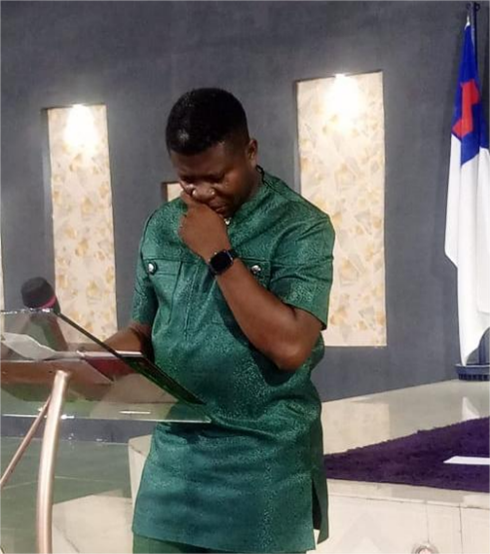Rev. Alphonso B. Korleh, a seasoned Liberian educator and clergyman, has issued a stark warning about the precarious state of Liberia’s education system. He contends that without immediate and comprehensive reforms, the nation risks inflicting “irreversible damage” on its educational sector within the next five years. His assessment, delivered in an interview on September 1, 2025, paints a grim picture of a system in decline, characterizing the current situation as “alarming and unacceptable.” Rev. Korleh’s concerns stem from his extensive experience in education, spanning over two decades, coupled with his advanced degree in educational leadership. He believes the declining educational standards are evident in the poor performance of many high school students, some of whom demonstrate academic proficiency levels comparable to elementary school students. While acknowledging the presence of some excelling students, he emphasizes that they represent the exception rather than the rule, their potential stifled by a failing system.
Rev. Korleh’s critique extends beyond mere observation; he directly challenges policymakers, accusing them of superficial engagement with deep-seated problems. He argues that political rhetoric and empty promises are insufficient to address the systemic failures plaguing the education sector. He calls for concrete action and stronger oversight within the Ministry of Education. This includes the establishment of a functional complaints department to address policy failures and systemic gaps, ensuring accountability and responsiveness within the educational bureaucracy. He stresses the profound implications of a failing education system, asserting that it’s not just about statistics and policies but about the very destinies of individuals.
The educator’s impassioned plea for reform is rooted in his belief in the transformative power of education. He views knowledge as the most valuable asset, a currency that determines the fate of nations. Describing teaching as his vocation, he draws parallels to the teachings of Christ, emphasizing his commitment to using education as a tool for empowerment and upliftment. This conviction underscores his urgent call for action, highlighting the critical need to salvage Liberia’s education system before it’s too late.
Rev. Korleh’s warning serves as a wake-up call for Liberia. His concerns highlight the urgent need for a paradigm shift in how education is approached in the country. He advocates for moving beyond superficial solutions and engaging with the root causes of the educational crisis. His call for a more robust and accountable Ministry of Education underscores the importance of effective governance and oversight in ensuring quality education for all Liberians. The urgency of his message emphasizes that inaction is not an option; failure to address these issues will have profound and lasting consequences for the nation’s future.
The heart of Rev. Korleh’s argument lies in the belief that education is not merely a service provided by the government, but a fundamental right that shapes individual lives and national destinies. The current state of the Liberian education system, he argues, is a betrayal of this fundamental right. The underperformance of students, the lack of accountability within the Ministry of Education, and the prevalence of superficial solutions all contribute to a system that is failing its students and its nation. The consequences of this failure, he warns, will be far-reaching and irreversible if not addressed promptly.
Rev. Korleh’s call for reform is not simply a plea for better schools and teachers; it is a call for a fundamental shift in how Liberia views and values education. It is a call for recognizing education as the cornerstone of national development and individual empowerment. It is a call for moving beyond political rhetoric and embracing concrete action, for holding policymakers accountable and for prioritizing the needs of students above all else. The future of Liberia, he suggests, rests on the nation’s ability to heed this call and to invest in the education of its people. The alternative, he warns, is a future marked by irreversible damage and lost potential.














